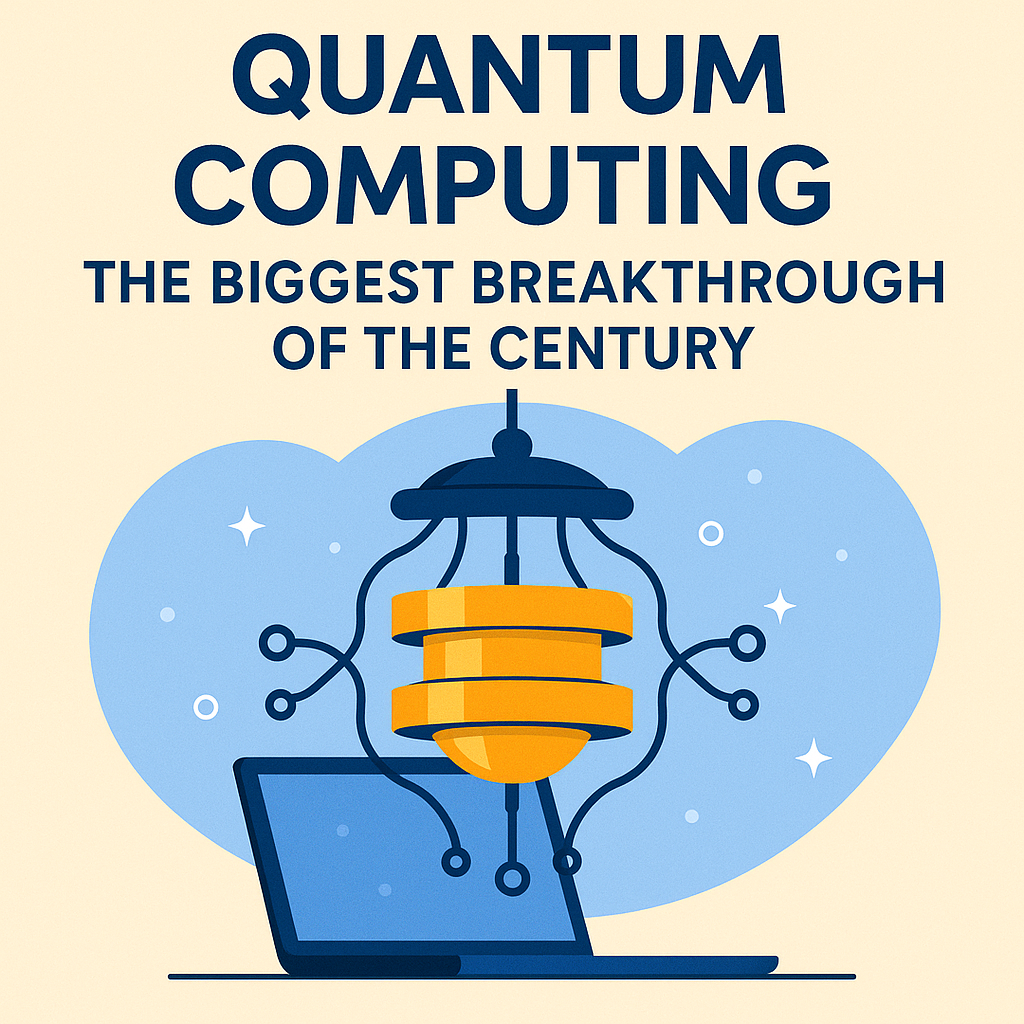Introduction
The 21st century has already produced numerous technological advancements that include everything ranging from Artificial Intelligence, 5G, space exploration, and biotechnology. However, among all these accomplishments, quantum computing may be the biggest breakthrough. The innovations that classic computers have brought to the world in the last couple of decades, quantum computing has the potential to redefine what is possible in computing, science, and industry.
In this article, we will take a look at why quantum computing is being perceived as the biggest innovation of the century, how quantum computing works, potential impacts for various industries, realities and challenges of quantum computing, and what the future holds.

What is Quantum Computing?
Essentially, quantum computing is not a mere faster computer; it is a much different way in which information can be processed. Classical computers use bits (0s and 1s), quantum computers use qubits. Although fundamental components of computers still exist, qubits are different in that they are able to exist in multiple states simultaneously. This occurs via the principles of superposition and entanglement.
Key Principles of Quantum Computing:
Superposition – A qubit can be both 0 and 1 simultaneously.
Entanglement – Qubits can be linked in such a way that the state of one qubit will affect the state of other qubits regardless of distance.
Quantum Interference – Understand quantum interference in order to amplify correct solutions and minimize incorrect solutions.
Because of this unique way of dealing with data, quantum computers
Obstacles with Quantum Computing
No matter what you are told, quantum computing has a substantial set of roadblocks:
Sensitive Qubits – Qubits are incredibly delicate and can be affected by ambient noise.
Costly – Quantum computers require advanced cooling systems and extensive resources.
Error Rates – Today’s machines are full of errors when computing.
Software – Programmers are currently developing programming languages and standards for quantum systems.
Academic and private sector research are fervently supporting the continued progress of quantum computing with funding at record levels.
The Global War for Quantum Supremacy.
The quantum computing push is not just a scientific endeavor, it is a fight for supremacy, potentially geopolitical in nature.
United States – Among the richest and largest private sector technology companies and every researcher funded by the US government, responsible for a large portion of quantum computing investments.
China – Large scale funding and continuous substantial investments in quantum research being supported politically and in its economy.

Europe – EU wants to have a quantum flagship that forces advancement across the continent.
Other Nations – Canada, Japan, and Australia also have strong national programs related to quantum computing.
This fight for supremacy will ensure a rapidly developing industry and competition for developing advanced commercial quantum computing systems. However, with quick growth comes concerns about international security, ethics, global equity etc.
Quantum Computing and the Future of Humanity
The overall growth of the technology could disrupt the way society functions, and in ways we cannot yet imagine.
Faster scientific discovery of any all (all scientific) activity.
New industries and jobs that will be strictly related to quantum engineering.
Potentially damaging levels of global security should encryption systems be disrupted.
Who controls and accesses this technology presents ethical questions and dilemmas.
